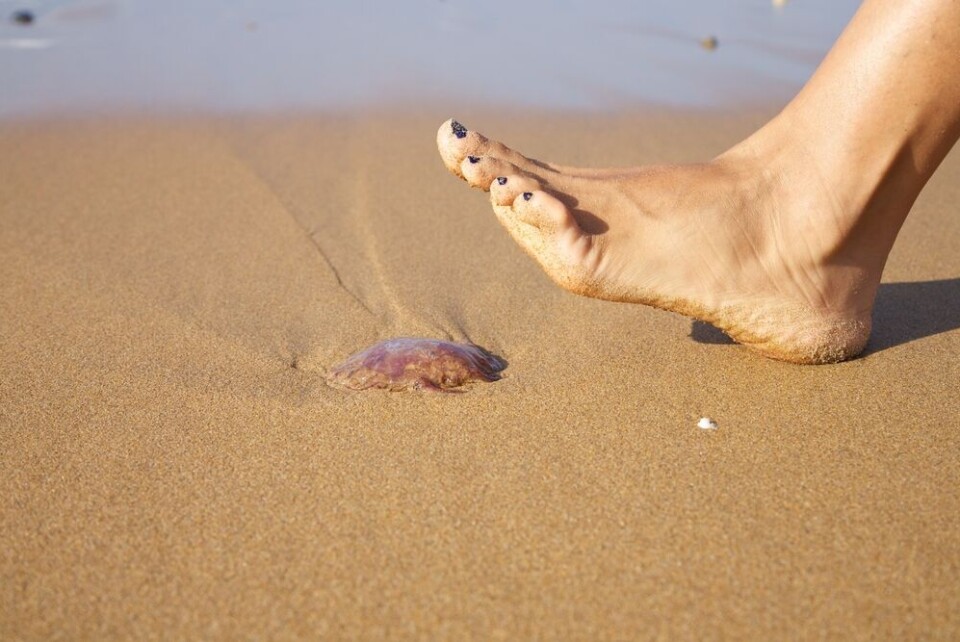-
Three departments in France on alert for flooding on Easter Monday
Storms cut electricity to 1,100 homes in Dordogne
-
Approval of roadside noise cameras in France will see fines issued against loud vehicles
The devices known as meduses already exist in several cities but so far have only been ‘instructional’
-
White storks make strong return in France via nest ‘platforms’ and clipped wings
The Ligue pour la Protection des Oiseaux shares the conservation challenges in saving these birds from extinction
Large numbers of jellyfish spotted on beaches in southern France
Here is how to avoid them and what to do in case of a sting

A large number of jellyfish have been spotted across beaches in southern France, prompting local prefectures to warn people to stay alert.
The strong ‘Mistral’ wind has pushed the jellyfish closer to the coast, with sightings reported on beaches along the coast from Marseille (Bouches-du-Rhône) to Menton (Alpes-Maritimes).
Some jellyfish have even been seen on the sand after being pushed out of the water by the strong wind.
“There was a strong mistral blowing along the entire coast of Provence,” said Manuel Marchioretti, a doctor in marine biology, to BFM Toulon Var. “The conditions were favourable for bringing the schools of jellyfish that were offshore towards the coast.”
Local prefectures have warned beachgoers to be aware and avoid the jellyfish as much as possible, including being careful not to step on them, pick them up, or swim among them.
This map shows where the marine animals have been reported, and when. You can report sightings yourself via the same website.
The jellyfish tend to be concentrated in just a few areas on each beach, which makes them easier to avoid. If you are able to sit and bathe in an area away from wind, or in the opposite direction to which it is blowing, you may be able to avoid them even more.
Happily for beachgoers, Dr Marchioretti said the phenomenon will last “48 hours, 72 hours at the most”.
#Prévention | ⚠️ Méduses signalées sur certaines plages du #Var !
— Préfet du Var (@Prefet83) August 8, 2023
👀 Prudence avant de se jeter à l'eau.
🔴 Les méduses qui viennent de s'échouer sur la plage sont toujours urticantes. Attention à ne pas marcher dessus ni les ramasser à la main !
👉 https://t.co/UHlRBtdvV1 pic.twitter.com/ZRFCzuzDeV
In case of a sting, the Var prefecture advised the following:
- Rinse the sting area with seawater (never fresh water, which can make the pain worse)
- Clean the area without rubbing it, and take off any remaining tentacles if needed (do not use bare hands)
- Put sand on the area and let it dry. Then scratch the sand off with something that has a rigid edge, like a postcard or piece of card
- Disinfect the area with a disinfectant cream or wipe. Avoid touching or scratching the sting area and keep it dry.
- If the pain continues and/or worsens, see a doctor.
Read more
Jellyfish back on French beaches: where are they, what to do if stung?
























